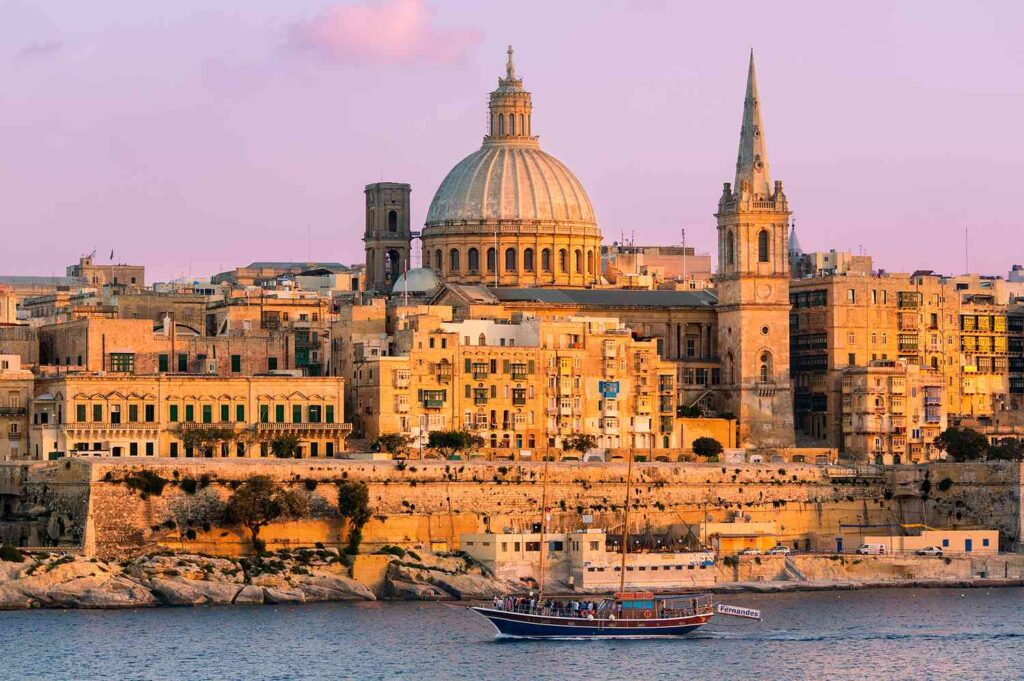- Malta’s golden-passport program has been halted by EU courts. This program allowed foreigners essentially to buy citizenship.
- Critics of this program claim that it exposes the EU and its citizens to corruption, money laundering, and other forms of criminal activity.
- The court’s decision could affect other golden passport programmes within the bloc.
It’s getting harder to get a European Union passport.
On Tuesday, the Court of Justice of the European Union (CJEU) ruled that Malta must end its golden passport program, which allowed foreigners to purchase citizenship in exchange for an investment of more than €600,000, according to EuroNews. This decision could also have an impact on other EU countries with similar programs.
“Today’s judgment confirms that member states cannot commodify EU citizenship and operate reckless golden passport programs,” Maíra Martini, the chief executive officer of Transparency International, said in a statement. “Numberless cases have demonstrated how these schemes provided safe haven for corrupt actors around the globe and other suspicious individuals within the EU. This ruling will stop Malta from selling EU Citizenship, and also other member states.
The Commission argued that Malta’s golden passport allowed people to acquire Maltese citizenship, without having to prove a genuine relationship to the country. This then allowed them the freedom to live and work in any part of the EU.
“The Commission asserts the scheme which granted naturalization to persons without any genuine connection with Malta in exchange for predetermined payments and investments constitutes a violation of the rules on Union citizenship as well as the principle of sincere co-operation,” the Commission wrote. “It brought a case against this Member State before Court of Justice.”
The Maltese Government responded to this ruling. It stated that previous recipients of the passport programme would not be impacted and that they plan to comply with the court ruling in the future. Forbes.
“As usual, the Government of Malta respects court decisions,” statement by the government reads. “At the moment, the legal implications are being studied in depth, so that we can align the framework for citizenship with the principles set out in the judgement.”
The government also stated in its statement that it was “proud of the wealth created through this framework during the past years, which allowed the establishment of a National Fund for Investment and Savings to meet the needs of present and future generation.”
This program differs from other golden visa programs, such as those in Portugal. They offered a way to citizenship via various investments. For example, buying a home, establishing a business or making a donation to the arts and culture. The program differs slightly from golden visa programs like those in Portugal, which offered a pathway to citizenship through various investments such as purchasing a home, starting a business or donating to arts and culture. EuroNews As pointed out by a Portuguese official, the Portuguese government had already scaled down its program. Real estate investments will no longer be an option after 2023. EuroNews noted that both the Netherlands and Spain have ended their golden visa programs.
Nick Aiossa (Director of Transparency International EU) said: “This case is about more than just national citizenship. It’s about ending a dangerous political policy that puts the EU’s freedoms on the market.” added. “As long as money can buy EU citizenship, the entire bloc is exposed to risks of corruption from money launderers and criminals—but no longer. The CJEU’s ruling ends Malta’s controversial golden-passport scheme, and prevents other members states from trading EU citizenship in the future.”


